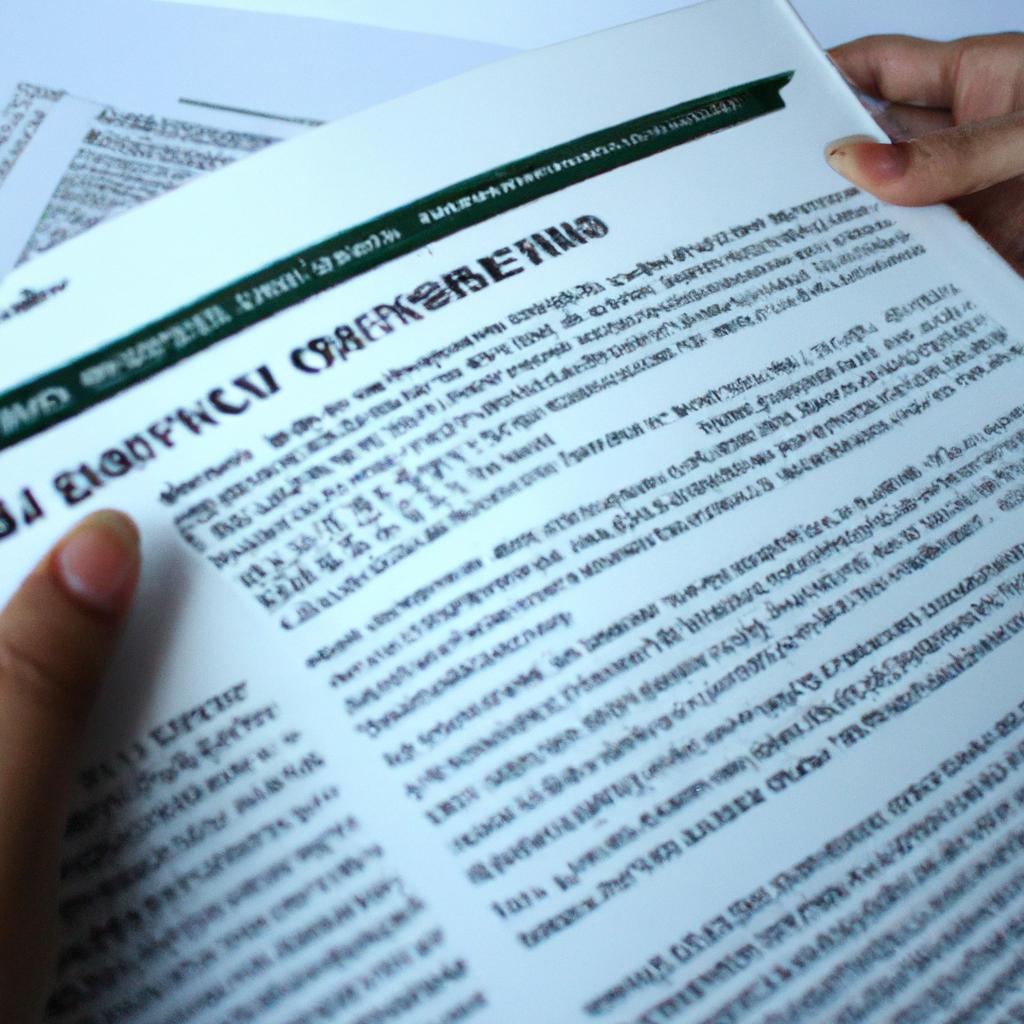In the ever-changing landscape of international travel, visa requirements play a crucial role in shaping global mobility. These governmental policies and regulations dictate who can enter a country, for how long, and under what conditions. The intricate web of visa requirements has far-reaching implications, affecting not only individuals seeking to explore new destinations but also the economies and diplomatic relations between countries.
To illustrate the significance of visa requirements, consider the case study of John, an aspiring traveler from Canada who dreams of exploring the vibrant streets of Tokyo. Despite his meticulous planning and excitement to immerse himself in Japanese culture, John faces an unexpected hurdle – obtaining a visa. His journey is stalled due to Japan’s stringent entry requirements that demand extensive documentation and proof of financial stability. This hypothetical scenario serves as just one example highlighting the complexities involved in navigating through visa processes.
As governments continue to refine their immigration policies, travelers are increasingly confronted with various challenges when it comes to securing visas. In this article, we will delve into the world of visa requirements, exploring government policies that shape travel politics on both individual and global levels. By examining specific cases and analyzing recent developments, we aim to shed light on the intricacies surrounding visa regulations while offering insights into potential future trends in this dynamic realm.
Visa regulations for international travelers
Consider a scenario where an individual from Country A wishes to travel to Country B. The process of obtaining a visa, which grants permission to enter and stay in another country, is an essential aspect of international travel. Visa requirements differ across countries due to various factors such as diplomatic relations, national security concerns, economic considerations, and immigration policies. This section explores the general framework of visa regulations for international travelers.
Overview of Visa Regulations:
- Complexity: Visa regulations can be complex and vary significantly depending on the destination country. Factors such as purpose of visit (e.g., tourism, business, study), duration of stay, and nationality play crucial roles in determining the type and validity period of visas.
- Application Process: Travelers are generally required to submit specific documents including passports, application forms, photographs, proof of financial means or sponsorship letter, and sometimes medical certificates or letters of invitation from hosts in the destination country.
- Fees: Most visa applications involve payment of processing fees that may vary based on the type and duration of the requested visa. These fees cover administrative costs associated with reviewing applications and conducting necessary background checks.
- Approval Rate: While most visa applications are approved without major issues if all requirements are met adequately, there might be cases where individuals face challenges securing visas due to reasons like incomplete documentation or inability to meet specific eligibility criteria.
It is important to note that these bullet points only provide a glimpse into the multifaceted nature of visa regulations worldwide. To better understand how different countries handle their respective visa policies, it is advisable for travelers to consult official government sources or seek guidance from competent authorities before planning any international journey.
Moving forward with important updates on visa requirements…
Please let me know if you need further assistance!
Important updates on visa requirements
Visa regulations for international travelers play a crucial role in shaping travel politics and government policies. Understanding these regulations is essential for both individuals planning their trips and policymakers formulating visa requirements. To illustrate the impact of such regulations, let us consider a hypothetical scenario involving an international traveler from Country A who wishes to visit Country B.
Country A has recently implemented stricter visa restrictions due to security concerns. As a result, citizens of Country A now face additional scrutiny when applying for visas to enter Country B. This example highlights how changes in visa regulations can significantly affect the mobility of travelers between countries.
When examining the broader context of visa requirements, several factors come into play. Here are some key points:
- Economic considerations: Governments often implement visa rules based on economic interests, aiming to attract tourists or skilled workers while protecting local job markets.
- Security concerns: Visa regulations may be tightened in response to global security threats or regional instability, as governments prioritize national safety.
- Bilateral agreements: Some countries establish reciprocal visa arrangements with specific nations as part of diplomatic relations or trade agreements.
- Political motivations: Changes in visa requirements can also reflect political shifts or tensions between countries, influencing travel patterns and people-to-people exchanges.
To further understand the complex landscape of international travel politics and its impact on visa rules, we present the following table:
| Factors Influencing Visa Requirements | Examples |
|---|---|
| Economic Considerations | * Promoting tourism revenue* Facilitating business travel* Encouraging foreign investment |
| Security Concerns | * Protecting borders from potential threats* Combating illegal immigration* Preventing terrorist activities |
| Bilateral Agreements | * Simplifying travel processes for neighboring countries* Streamlining visa procedures for strategic partners* Enhancing cultural exchange programs |
| Political Motivations | * Imposing sanctions through restrictive visa policies* Responding to geopolitical events* Exerting diplomatic pressure |
In light of these considerations, it becomes evident that visa regulations are not solely bureaucratic procedures but rather reflections of broader political and socio-economic dynamics. The impacts of travel politics on visa rules extend beyond individual travelers to encompass geopolitical relationships, economic development, and national security.
Transitioning seamlessly into the subsequent section about “Impacts of travel politics on visa rules,” we delve deeper into how international relations and changing global dynamics shape the way governments design their visa requirements.
Impacts of travel politics on visa rules
Emerging Trends in Visa Regulations: Navigating Travel Politics
To understand the current landscape of visa regulations, it is essential to examine how travel politics can influence government policies. Let’s consider a hypothetical scenario where Country X has recently experienced an increase in immigration from neighboring countries due to economic instability. In response, the government of Country X decides to tighten its visa requirements for nationals from these countries.
This case study highlights the intricate relationship between travel politics and visa rules. As governments grapple with various political, social, and economic factors, they often adjust their visa policies accordingly. The impacts of such changes are far-reaching and can affect individuals, businesses, and international relations.
The following bullet points provide a glimpse into some key implications that arise from shifts in travel politics:
- Increased bureaucracy: Stricter visa requirements may lead to additional paperwork and longer processing times.
- Economic consequences: Changes in visa regulations can impact tourism industries and hinder business partnerships.
- Cultural exchange limitations: More stringent policies might discourage cross-cultural interactions and limit opportunities for cultural understanding.
- Diplomatic tensions: Alterations in visa rules could strain diplomatic relationships between countries involved.
| Implications | Examples |
|---|---|
| Longer processing times | Delays in obtaining visas can disrupt travel plans or hinder urgent business meetings. |
| Decline in tourist numbers | Strict entry requirements may deter potential tourists who find the process cumbersome or uncertain. |
| Limited educational opportunities | Stringent student visa rules might prevent aspiring students from pursuing higher education abroad. |
| Negative perception of host country | Unfriendly visa procedures can create unfavorable impressions among visitors about the welcoming nature of a destination. |
In conclusion, evolving travel politics exert significant influence on visa regulations worldwide. Governments adapt their policies based on various considerations, leading to both intended and unintended consequences for travelers and nations alike. Understanding these dynamics helps individuals and businesses navigate the complexities of visa requirements, ensuring smoother international mobility.
Looking ahead, we will now explore emerging trends in visa regulations that reflect the evolving global travel landscape.
Emerging trends in visa regulations
The impacts of travel politics on visa rules are far-reaching, with governments around the world constantly reassessing their policies to align with changing geopolitical dynamics. One notable example is the recent tightening of visa regulations by Country X in response to increasing concerns over national security. This case study highlights how political factors can significantly influence visa requirements and shape international travel patterns.
When examining the impacts of travel politics on visa rules, it becomes evident that several key trends have emerged:
-
Selective reciprocity: In an era where countries strive to protect their borders while maintaining diplomatic relations, selective reciprocity has become a common approach. This means that nations may grant preferential treatment to certain countries or regions based on mutual agreements or strategic interests. For instance, Country Y implemented a streamlined visa application process for citizens of neighboring countries as part of a broader effort to foster regional economic integration.
-
Heightened scrutiny: Increased emphasis on border security has led many governments to adopt more rigorous screening processes for visa applicants. Background checks, interviews, and biometric data collection are now standard procedures in various destinations worldwide. These measures aim to identify potential threats and ensure that only individuals who meet specific criteria are granted entry.
-
Visa facilitation programs: Some countries have recognized the economic benefits associated with attracting foreign visitors and have introduced visa facilitation programs accordingly. These initiatives typically involve simplifying bureaucratic processes, reducing fees, and offering expedited services to eligible travelers. Country Z’s introduction of an e-visa system resulted in a significant boost in tourism revenue within just one year.
-
Retroactive policy changes: Travel politics sometimes lead to sudden shifts in visa regulations without much prior warning or consideration for existing plans made by prospective travelers. Such retroactive policy changes can disrupt travel arrangements and cause inconvenience for individuals who had already initiated the application process or booked flights and accommodations.
These trends illustrate the complex interplay between political considerations and visa rules. Governments must strike a delicate balance between security concerns, economic interests, and diplomatic relations when formulating their policies.
Moving forward, it is essential for individuals planning international travel to consider these impacts of travel politics on visa regulations.
Key considerations for visa applications
Emerging trends in visa regulations have significant implications for individuals seeking to travel internationally. These trends reflect the changing dynamics of global politics and government policies, which directly influence the requirements imposed on travelers. To illustrate this point, consider a hypothetical situation where an individual from Country A wishes to visit Country B for tourism purposes.
One emerging trend is the increasing emphasis on national security concerns when formulating visa regulations. Governments are prioritizing the safety of their citizens and protecting against potential threats by implementing stricter screening processes. For instance, Country B may require additional documentation and background checks for visitors from high-risk regions or countries with political instability.
Another important trend is the promotion of economic growth through tourism. Countries recognize the positive impact that international visitors can have on their economy, leading them to revise visa policies accordingly. In our example, Country B might introduce streamlined visa application procedures and relax certain restrictions to attract more tourists from abroad, aiming to boost its tourism industry.
Furthermore, technological advancements play a crucial role in shaping visa regulations today. Many countries have adopted electronic systems for visa applications and processing, simplifying the overall procedure and reducing paperwork burdens. This shift towards digitization enhances efficiency and convenience both for applicants and immigration authorities.
It is essential for travelers to be aware of these emerging trends as they navigate the complexities of visa applications. Here is a bullet-point list summarizing key considerations:
- Stay informed about any recent changes or updates in visa requirements.
- Research specific entry criteria such as validity period, purpose of travel, financial proof, and health insurance coverage.
- Be prepared to provide necessary supporting documents promptly.
- Seek professional advice if uncertain or encountering difficulties during the application process.
Additionally, understanding how different countries categorize visa exemptions can help determine eligibility without going through traditional application procedures. The table below highlights common categories based on nationality:
| Category | Visa Exemption |
|---|---|
| Visa-free | No need for a visa to enter the country |
| Visa on arrival | Obtain a visa upon arrival at the destination airport |
| Electronic Travel Authorization (ETA) | Apply online for travel authorization, eliminating the need for a physical visa |
| E-visa | Apply online for an electronic visa before traveling |
By comprehending these categorizations and associated requirements, travelers can better plan their trips and avoid unnecessary complications. Understanding visa restrictions and exemptions allows individuals to make informed decisions about their international travel plans while complying with government policies regarding entry into different countries.
Transitioning into the subsequent section about “Understanding visa restrictions and exemptions,” it is crucial to consider various aspects that determine eligibility and facilitate smoother travel experiences.
Understanding visa restrictions and exemptions
Having established the key considerations for visa applications, it is important to now delve into understanding various visa restrictions and exemptions. This knowledge will provide travelers with a comprehensive understanding of how government policies impact travel arrangements.
Understanding visa restrictions and exemptions:
To illustrate the intricacies of visa restrictions and exemptions, let us consider an example of a traveler planning to visit Country X. The individual holds a passport from Country Y which has a historically strained relationship with Country X due to political conflicts. As a result, citizens of Country Y face stringent visa requirements when traveling to Country X, often necessitating extensive documentation and security checks.
It is crucial for travelers to be aware of the following aspects related to visa restrictions and exemptions:
Emotional bullet point list (markdown format):
- Lengthy processing times causing frustration among applicants.
- Uncertainty surrounding approval or rejection leading to anxiety.
- Financial burden associated with application fees and additional expenses.
- Restrictions on mobility hindering personal freedom.
The table below provides an overview of common types of visa restrictions faced by travelers:
| Type of Restriction | Description | Emotional Impact |
|---|---|---|
| Strict quotas | Limiting the number of visas issued annually | Frustration |
| Geographic limits | Restricting entry based on specific regions | Disappointment |
| Employment-based | Requiring job offers or sponsorships | Anxiety |
| Language proficiency | Demanding language skills beyond basic fluency | Overwhelm |
In light of these challenges, individuals may experience emotional strain as they navigate the complexities presented by different countries’ visa policies. By acknowledging these difficulties, policymakers can work towards creating more accessible avenues for international travel while maintaining national security interests.
In conclusion, understanding the nuances surrounding visa restrictions and exemptions is crucial for travelers. By being aware of the emotional impact that such policies can have, individuals can better prepare themselves to navigate through the visa application process. It is imperative for governments to strike a balance between security concerns and promoting international mobility, ensuring smoother travel experiences for all parties involved.
 Plains News
Plains News



